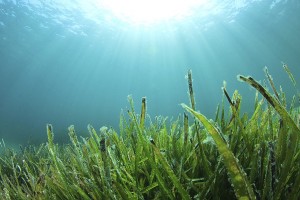 YARMOUTH – A Yarmouth man long involved in trying to solve the region’s water quality woes is moving forward on a pilot program in South Yarmouth that uses algae both to remove nutrients from wastewater and also to power the process.
YARMOUTH – A Yarmouth man long involved in trying to solve the region’s water quality woes is moving forward on a pilot program in South Yarmouth that uses algae both to remove nutrients from wastewater and also to power the process.
Brian Braginton-Smith, president and CEO of AquaGen Infrastructure Systems, is working on a facility next to the Parker’s River that is meant to treat wastewater in an environmentally friendly way that also does not burn fossil fuel for the energy supply.
“It’s actually the first fully integrated algae-based wastewater treatment facility that I know of and it’s part of what we’re envisioning as a watershed based solution for the Parker’s River watershed,” Braginton-Smith said.
The Cape Cod Commission has been working on updating the region’s wastewater plan, called the 208 plan, with a watershed-based solution to the region’s wastewater issues.
“It’s got the capability to get way down on the nitrogen that comes out of the pipe,” he said referring to the need to remove as much nitrogen as possible from the wastewater so it does not pollute the region’s groundwater and estuaries.
Braginton-Smith said his process–called a photo-bioreactor–uses microscopic algae that is part of plankton in the ocean and takes advantage of its ability to consume nutrients and carbon dioxide while breathing off oxygen.
Braginton-Smith said he has been running a lab next to the Parker’s River in a greenhouse to the west of the former Zooquarium while developing the process for the last several years.
At night, Braginton-Smith said, “It’s got sort of this purple pinkish glow that’s from the LED lighting. The photo-bioreactor is in a 24-hour photosynthesis cycle, so it’s always sort of breathing CO2 in and exhaling carbon dioxide and consuming nutrients.”
Braginton-Smith said he envisions his process as one part of the solution to the Cape’s wastewater problem.
“If we can remove the nutrients from the water and help to bring about the restoration of the coastal ecosystem, if we can also remove substantial volumes of CO2 from the atmosphere then we’re also having a positive impact on the atmospheric pollution,” he said.
His idea of powering the system by converting algae to energy is a key part of the process.
“If we’re going to be moving forward and making the decision to solve the problem of the wastewater, while we’re engaging in that solution, we should be trying to accomplish as much as we can to help to bring about more sustainable communities on Cape Cod and around the world. It just makes sense and that’s the model that we’re following,” he said.
Braginton-Smith said the initial cost for the South Yarmouth site will be $2.2 million to $4.3 million. The project has already received a $900,000 grant from the Bi-National Industrial Reserach and Development Foundation (BIRD).
Braginton-Smith said he expects a couple of stakeholders who would use the wastewater treatment for their properties would also contribute. “We’re the majority of the way there,” he said of funding. “We fully expect that this will be fully capitalized and moving forward.”
The permitting process is just beginning, he said. He estimated 18 months for the regulatory process to complete and the system to begin treating wastewater with the algae process he has developed.
“I’m not saying our wastewater treatment plants are going to be the salvation of the global warming, but every step that we take that consumes CO2 and sequesters it is beneficial,” he said.
























